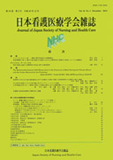Japanese
English
- 有料閲覧
- Abstract 文献概要
- 参考文献 Reference
要旨
ストレスを繰返し受け、かつストレスが持続すると生体はストレスに対する適応力を失いやすく、ストレスの多い生活環境に置かれている人ほどうつ病になりやすい。ストレスに対する生体の適応力の破綻は視床下部─下垂体─副腎系の持続的な活性化や脳内での炎症性サイトカインの産生、神経の生存・成長・分化に必要とされる脳由来神経栄養因子の減少をもたらす。これらの事象はうつ病の発症と関連性をもっている。運動を取り入れること、適度に屋外の光を浴びること、ある種の食べ物の摂取などはストレスによるうつ病の非薬物療法として有用である。本稿は最近の論文をもとにこれらを概説した。
Abstract
When stress becomes repetitive and sustained, the ability to stress coping is often impaired, and susceptible individuals in stressful circumstances are at increased risk of developing depression. Impaired stress coping induces hyperactivity of the hypothalamus - pituitary - adrenal axis, proinflammatory cytokine production in the brain and with reduced levels of brain-derived neurotrophic factor regulating neuronal survival, growth and differentiation. These changes are involved in depression development. Physical exercise, appropriate sunlight exposure and useful diet intake are beneficial treatments without drugs for alleviation of stress-related depression.
The topics in this article were briefly reviewed based on recent reports.
Copyright © 2014, Japan Society of Nursing and Health Care All rights reserved.


